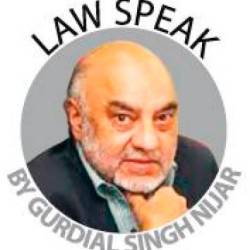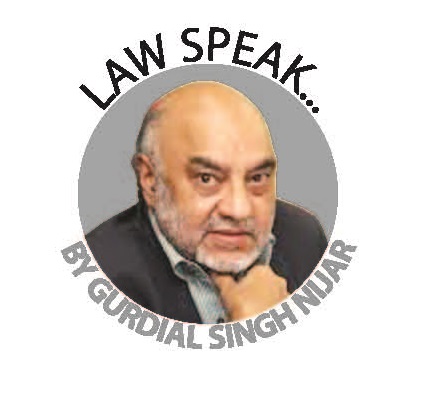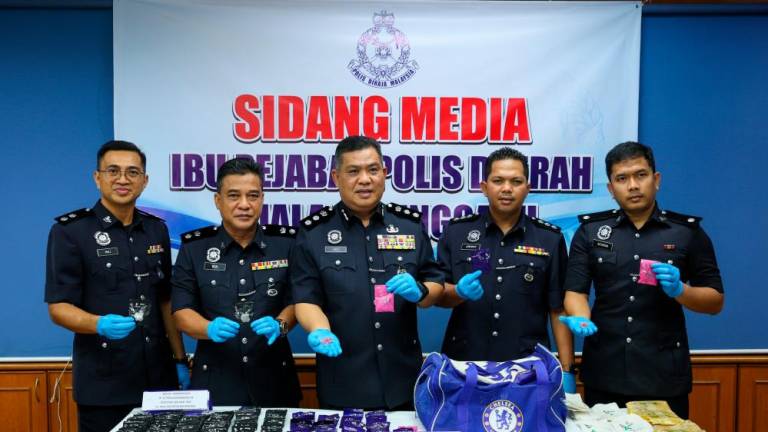TWO weeks ago the prime minster announced that the government will establish a royal commission of inquiry (RCI) with regard to the rather explosive allegations made by a judge of the Court of Appeal.
Under the Commissions of Enquiry Act 1950, the King is to set up the RCI and name the commissioners.
In reality it is the government of the day that undertakes both these tasks.
It is the attorney-general’s (AG) task to do so. He also drafts the scope of the enquiry; as well as fixes the number of commissioners and the chairman, as well as announces where and when the enquiry will be held and whether it will be open to the public.
Appointed commissioners should command the confidence of the public. Otherwise there will be public disquiet over the outcome.
The appointment of a former chief justice as chairman of the Wang Kelian RCI – to deal with mass graves and cross-border human trafficking of a most horrific nature – was publicly questioned because of his “negative” track record in his decisions on human rights and constitutionalism.
The Forex Trading RCI was also not well received and was seen as a political witch-hunt essentially targeting Prime Minister Tun Dr Mahathir Mohamad and PKR president Datuk Seri Anwar Ibrahim.
The criteria for selection must be individuals of unquestionable intellectual honesty, integrity, courage and independence. The panel could comprise former judges, law professors, lawyers and credible members of the civil society.
The inquiry’s scope could be narrowed down to ascertain any wrongdoing and the persons implicated or it could extend to identifying systemic weaknesses.
In this present case relating to judicial integrity and interference in court decisions, the RCI could be tasked with first determining the truth of the allegations; and, if true, naming those involved as well as how this could be prevented or dealt with in the future.
The overarching objective of the RCI should be to restore the image of the judiciary, said two well-respected retired Court of Appeal judges, and to banish “any shadows hanging over the judiciary, or lingering doubts about the integrity and independence of the judiciary”.
One of them, Justice Mah Weng Kwai referenced as a starting point, allegations made in 1996 by a then sitting High Court judge in a 33-page letter specifying 112 judicial misconduct allegations by 12 judges.
The inquiry would be conducted by lawyers from the AG’s Chambers or, perhaps, private lawyers nominated by the Chambers.
Chambers decides on the potential witnesses, who would have been interviewed and their statements recorded.
Chosen witnesses would then be called to testify on oath. They will read their statements at the inquiry and then it is open to the Commissioners to question them.
The Act gives any person whose conduct is being looked into or anyone else who is concerned or could be implicated, the right to be represented by a lawyer. Others too who think it desirable may apply to be represented.
In the Forex RCI, lawyers represented Mahathir, Anwar and Bank Negara.
The extent of the participation of lawyers is determined by the Commissioners.
Some panels restrict their participation to asking a limited number of questions, made known to the panel and approved beforehand as occurred in the Forex RCI, giving rise to allegations of a farcical hearing by a kangaroo court.
On the other hand, the panel of the VK Lingam RCI allowed greater latitude to lawyers representing interested parties, including the Bar Council, to examine witnesses.
No commissioner can be made liable for any act done as a commissioner. Unless, in my view, it is made in bad faith. Nor can a witness be sued for the evidence given.
The RCI submits a report of its findings and recommendations to the King.
These, the Federal Court ruled, cannot be challenged in courts. Because they are not binding on anybody – neither a person affected nor even the government.
It is against public interest, said the court, to allow any such challenge: Members of the Commission of Enquiry v Ahmad Fairuz, VK Lingam, and Tun Eusoff Chin (2011). Else, said the Court, it would make the setting up of the RCI a meaningless exercise and a waste of public funds.
So, if there is a finding of misconduct by the RCI, the person named cannot challenge this in court.
Ultimately, will action be taken based on the outcome of the RCI? It all hinges on the will of the government.
The record of the former government has been dismal. It took no action on a litany of RCIs – signifying a clear waste of public money and precious time.
Finally, some question whether the RCI is the best mode of dealing with highly contentious issues raised by the judge in an affidavit filed in another court case.
Won’t that court have to first deal with it in its adjudication of the issues raised in that suit before an RCI is contemplated?
Gurdial is president of Hakam, the National Human Rights Society. Comments: letters@thesundaily.com













